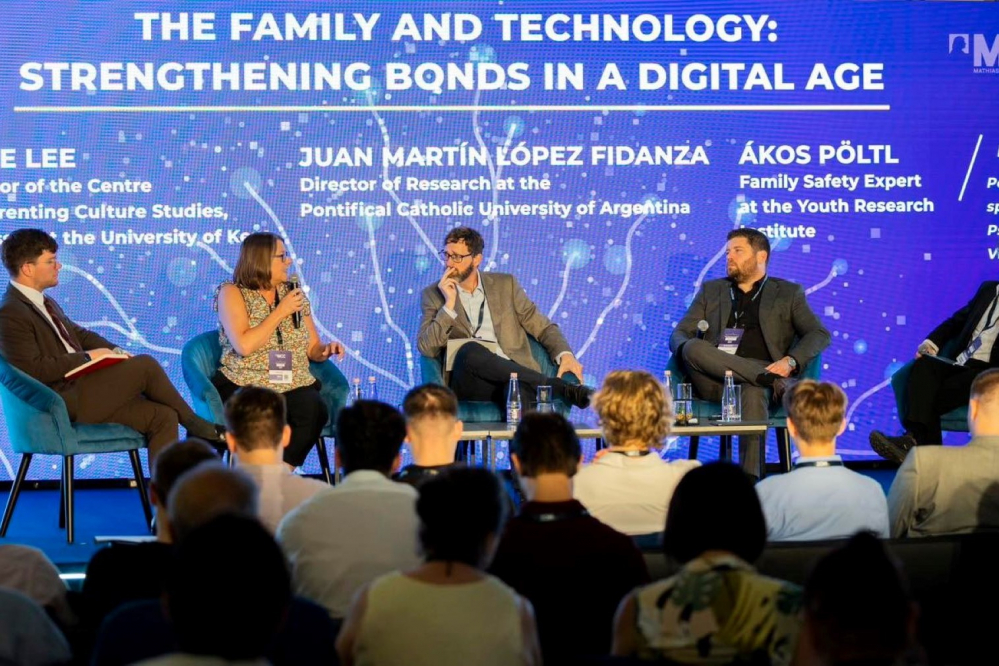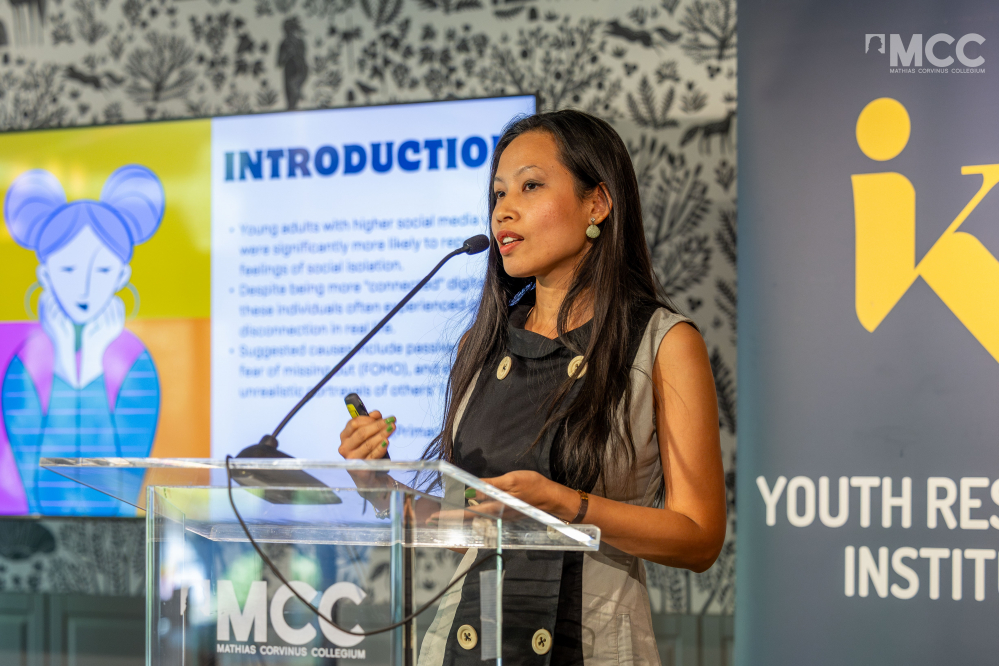Two of our colleagues also participated in the panel discussions of this year's MCC Budapest Summit conference.
The opening panel discussion of the MCC Budapest Summit on Technology and Society was titled "The Balance of Innovation and Traditions: The Role of Technology in Preserving Cultural Identity." The participants sought answers to how emerging technologies – particularly artificial intelligence – are transforming the ways in which cultural heritage is preserved and passed on.
Moderated by Georgina Kiss-Kozma, Head of Research at our Institute, the conversation opened with the reminder that every tradition was once an innovation, setting the stage for a forward-looking yet critical dialogue.
Panelists included:
Dr. Zoltán Cséfalvay, Head of the Center for Next Technological Futures at MCC, who argued that we are now in the implementation—not discovery—phase of AI. He warned that premature regulation, particularly in the EU, could stifle progress and exploration of alternative AI models.
Norman Lewis, Visiting Research Fellow at MCC Brussels emphasized that technology is a cultural phenomenon. He critiqued the EU’s regulatory approach, pointing out that foundational models are still evolving and innovation should not be replaced by bureaucracy.
Josefina Gimenez, Director of Research and Innovation at Artimon noted that AI not only archives traditions but can also dilute them. Its global standardization risks stripping cultural practices of their lived, local essence.
Timandra Harkness, author and presenter highlighted how technology personalizes and fragments our experiences. She suggested the real issue isn’t technology itself but our growing uncertainty about identity and tradition—something tech now conveniently tries to resolve for us.
On the second day of the conference, during the panel discussion titled "Family and Technology: Strengthening Connections in the Digital Age", the participants discussed the impact of technology on young people.
Ákos Pöltl, family safety expert at the Youth Research Institute, also took part in the roundtable discussion
The key topics included:
- The growing tendency of young people to be more controlling in their relationships, while romantic love seems to be disappearing from everyday life.
- AI is developing increasingly sophisticated emotional intelligence, leading many to form trusting, even friendly relationships with chatbots.
- In the future, access to AI will become increasingly tied to income levels; those in worse financial situations may have access to lower-quality AI, leading to inequalities in informal knowledge gathering.
- Among college-educated American women working from home, there has been a significant increase in the willingness to have children.
- Children are receiving smartphones at an increasingly early age, which sets back their ability to form personal connections with peers and family members.
The experts’ proposed solutions to the negative effects of technology included strengthening community initiatives, holding large corporations accountable, and reclaiming parental authority from the state and corporate actors.
Other panelists included:
Jared Hayden – Institute for Family Studies, Family First Tech Initiative
Ellie Lee – University of Kent, Centre for Parenting Culture Studies
Juan Martín López Fidanza – Pontifical Catholic University of Argentina
Leonardo Orlando – Psychologist, visiting lecturer at MCC








